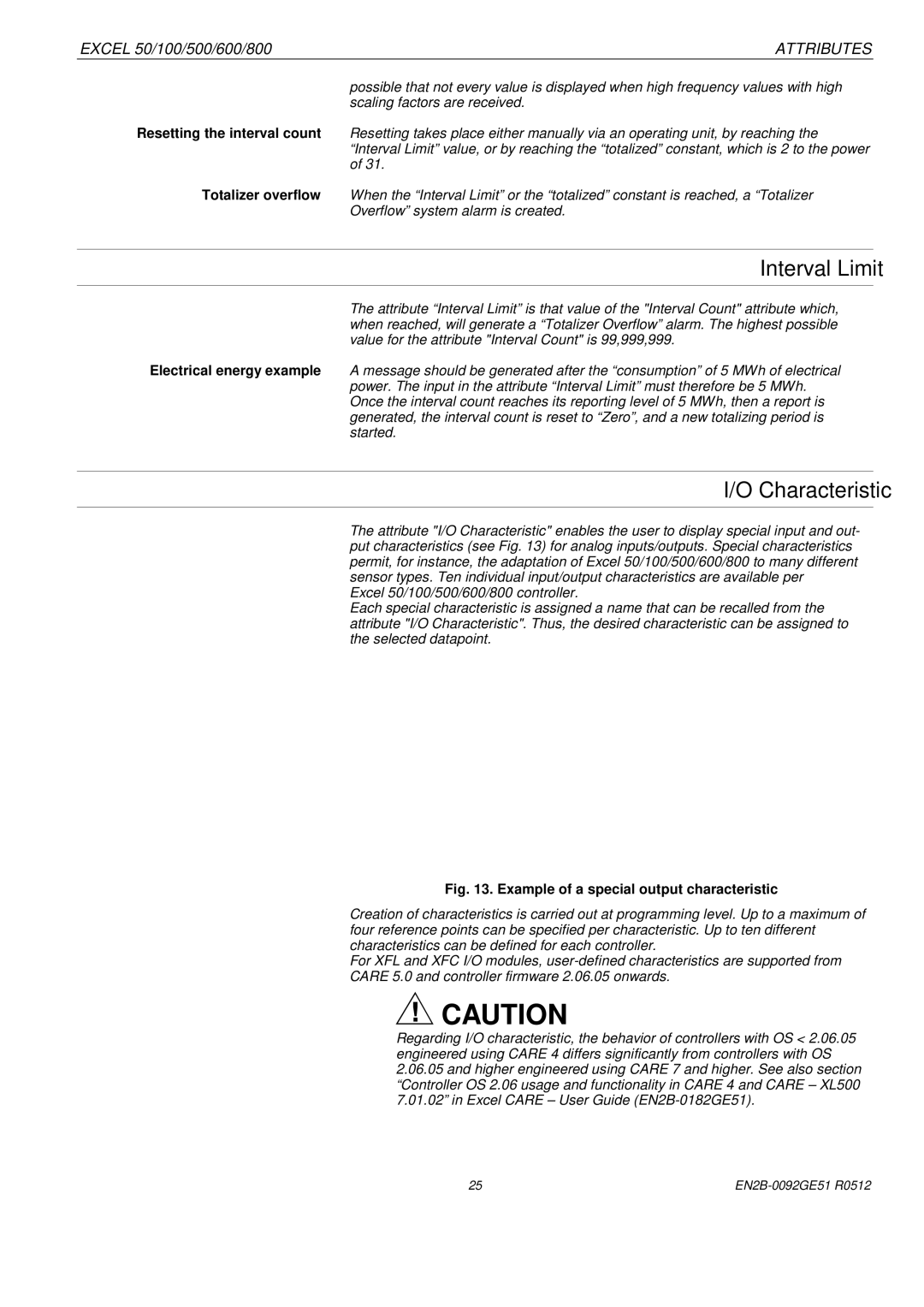
EXCEL 50/100/500/600/800 | ATTRIBUTES |
possible that not every value is displayed when high frequency values with high scaling factors are received.
Resetting the interval count Resetting takes place either manually via an operating unit, by reaching the “Interval Limit” value, or by reaching the “totalized” constant, which is 2 to the power of 31.
Totalizer overflow When the “Interval Limit” or the “totalized” constant is reached, a “Totalizer Overflow” system alarm is created.
Interval Limit
The attribute “Interval Limit” is that value of the "Interval Count" attribute which, when reached, will generate a “Totalizer Overflow” alarm. The highest possible value for the attribute "Interval Count" is 99,999,999.
Electrical energy example A message should be generated after the “consumption” of 5 MWh of electrical power. The input in the attribute “Interval Limit” must therefore be 5 MWh. Once the interval count reaches its reporting level of 5 MWh, then a report is generated, the interval count is reset to “Zero”, and a new totalizing period is started.
I/O Characteristic
The attribute "I/O Characteristic" enables the user to display special input and out- put characteristics (see Fig. 13) for analog inputs/outputs. Special characteristics permit, for instance, the adaptation of Excel 50/100/500/600/800 to many different sensor types. Ten individual input/output characteristics are available per
Excel 50/100/500/600/800 controller.
Each special characteristic is assigned a name that can be recalled from the attribute "I/O Characteristic". Thus, the desired characteristic can be assigned to the selected datapoint.
Fig. 13. Example of a special output characteristic
Creation of characteristics is carried out at programming level. Up to a maximum of four reference points can be specified per characteristic. Up to ten different characteristics can be defined for each controller.
For XFL and XFC I/O modules,
![]() CAUTION
CAUTION
Regarding I/O characteristic, the behavior of controllers with OS < 2.06.05 engineered using CARE 4 differs significantly from controllers with OS
2.06.05and higher engineered using CARE 7 and higher. See also section “Controller OS 2.06 usage and functionality in CARE 4 and CARE – XL500 7.01.02” in Excel CARE – User Guide
25 |
